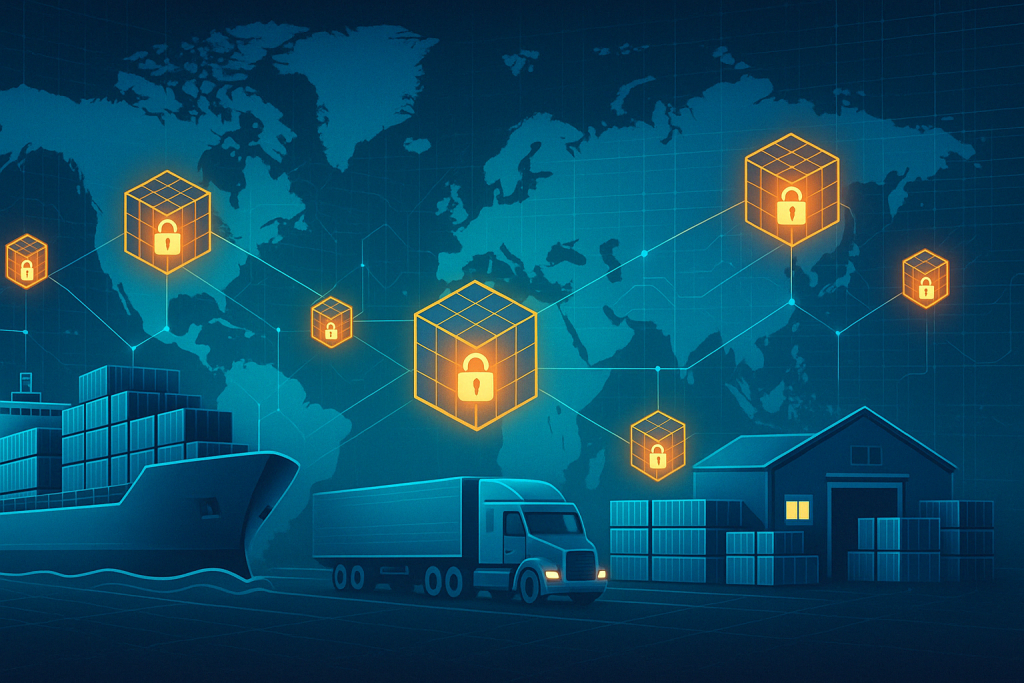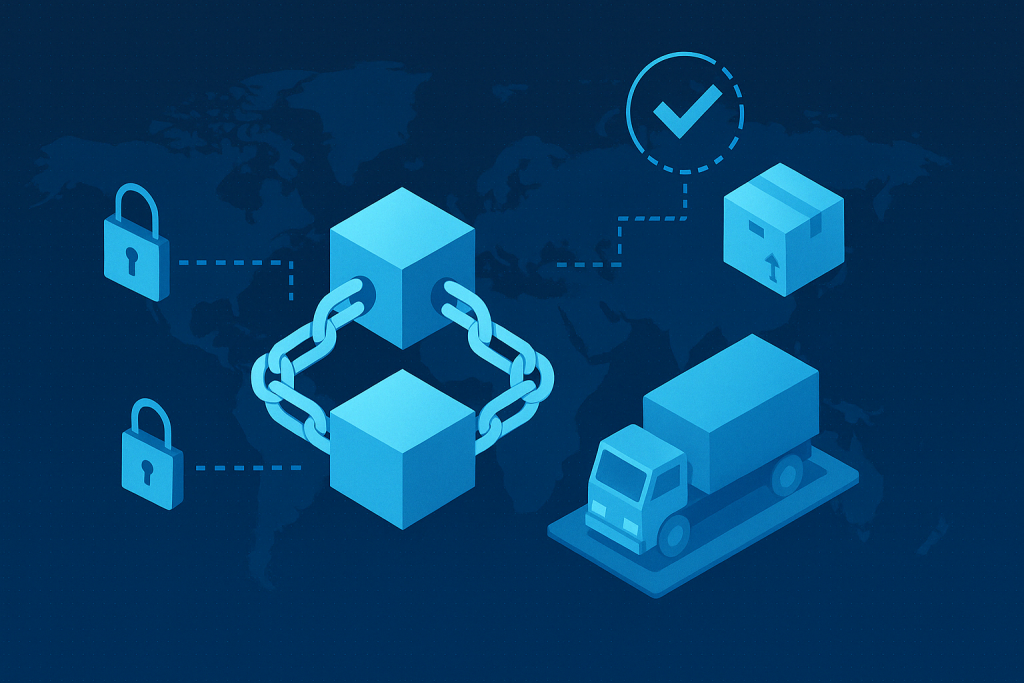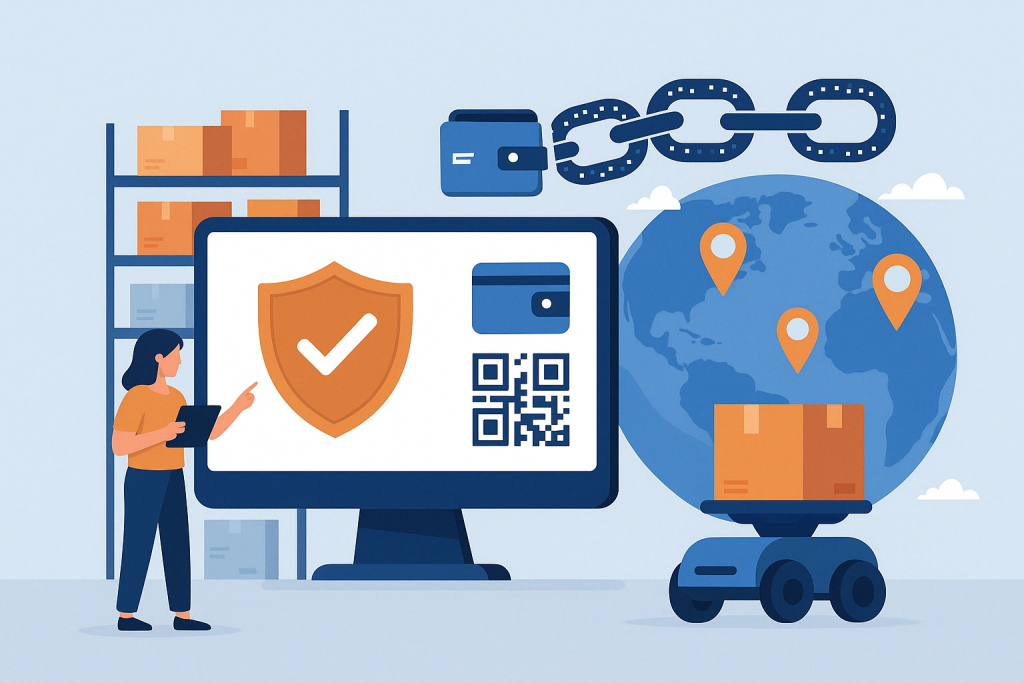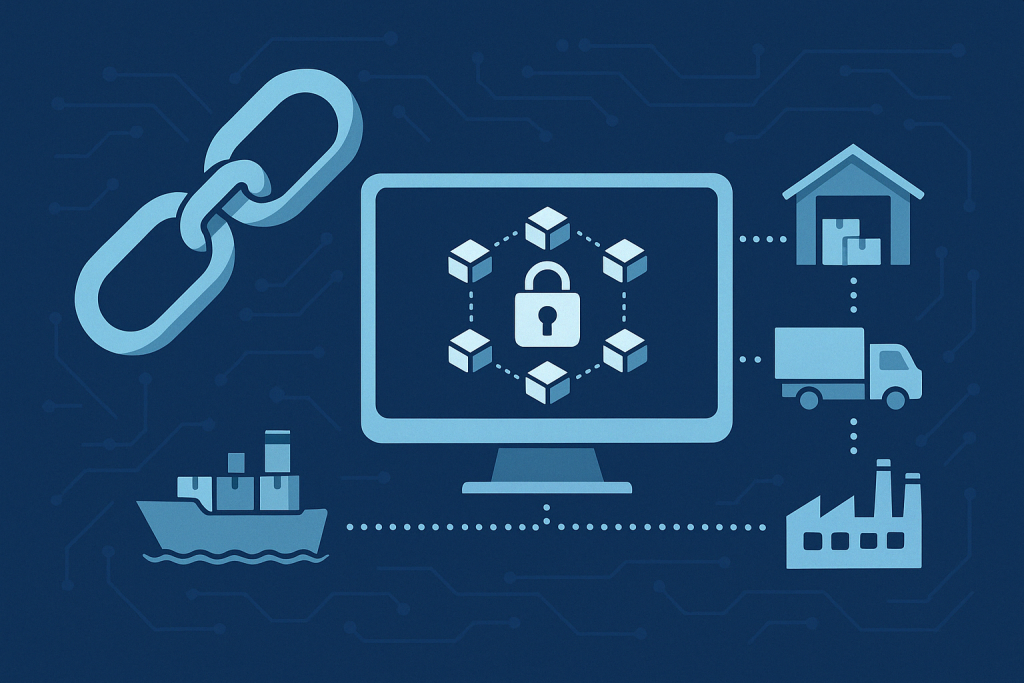Blockchain supply chain: Enhancing Transparency & Trust
In today’s complex global trade landscape, trust, traceability, and transparency are more critical than ever. Enter blockchain technology, a tool that’s transforming how supply chains are managed—by making every transaction verifiable, secure, and visible in real time.

💡 What Is Blockchain supply chain?
At its core, blockchain is a decentralized digital ledger that records transactions across a network. In supply chains, it offers a single source of truth that all parties can access—but no one can alter retroactively.
Each transaction (or “block”) is:
- ✅ Time-stamped
- ✅ Encrypted
- ✅ Linked to the previous one
- ✅ Verified across participants (nodes)
This ensures data immutability, increases accountability, and reduces the risk of fraud or manipulation.

🚛 Real-World Applications of Blockchain supply chain in Logistics
1. End-to-End Product Traceability
Blockchain allows every step of a product’s journey to be logged:
- Origin of materials
- Manufacturing details
- Transport conditions
- Delivery handoffs
📦 Use case: In food, pharma, or luxury goods, companies can verify authenticity, prevent counterfeiting, and ensure quality standards.
2. Smart Contracts for Freight Agreements
Smart contracts are self-executing agreements coded into the blockchain.
📃 Use case: A freight payment is triggered automatically when goods are delivered and verified by sensors—no manual paperwork needed.
3. Chain of Custody Verification
With blockchain, each handoff (e.g. warehouse to carrier to customs) is logged and verified.
🔐 Use case: Reduces disputes, improves accountability, and prevents fraud—especially useful for high-value or sensitive shipments.
4. Compliance & Audit Readiness
Blockchain provides an unalterable audit trail, ideal for regulatory reporting.
📄 Use case: Customs, FDA, or sustainability audits are faster and more accurate when backed by verified blockchain records.
5. Inventory & Supplier Management
Blockchain helps align supply with demand by sharing accurate stock and order data among partners in real time.
📊 Use case: Avoids overstocking or understocking, and improves trust with suppliers through transparent data sharing.

📈 Key Benefits of Blockchain supply chain
Benefit | Impact |
|---|---|
🔍 Transparency | Everyone sees the same verified data |
🔒 Security | Data is tamper-proof and encrypted |
🤝 Trust | Reduces fraud, increases accountability |
⏱️ Speed | Automates paperwork and payment flows |
🧾 Auditability | Every transaction is logged permanently |
🧠 Blockchain + Modern Supply Chain Platforms
To make blockchain truly useful, it must integrate with your operational tools—like WMS, TMS, or ERP systems. Platforms like Linbis can benefit from blockchain by enabling:
- Verified shipment events
- Digital proof of delivery
- Smart contract execution
- Automated customs clearance
- Global traceability dashboards
When combined with IoT and AI, blockchain becomes part of a powerful digital ecosystem that enables predictive, traceable, and secure logistics.

🚀 Final Thoughts
Blockchain isn’t a buzzword—it’s a strategic advantage. In a world where delays, disputes, and distrust can break supply chains, blockchain provides clarity and confidence.
Whether you’re shipping pharmaceuticals across borders or tracking perishable food from farm to fork, blockchain ensures every step is transparent, verifiable, and secure.
The future of supply chains is connected, intelligent—and built on trust. Blockchain is making that future possible.
